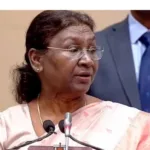In a landmark development, the pro-talks faction of the United Liberation Front of Asom (ULFA) has inked a peace pact with the central government on Friday, December 29. The agreement, signed in the presence of Union Home Minister Amit Shah and Assam Chief Minister Himanta Biswa Sarma, marks a significant chapter in the history of the Assam insurgency.
“Assam has suffered for long due to the violence of ULFA, and 10,000 people lost their lives in this violence since 1979,” stated Union Home Minister Amit Shah.
According to the terms of the peace deal, the pro-talks faction of ULFA has committed to renouncing violence, disbanding the organization, and participating in the democratic process. The ULFA insurgency has posed a persistent challenge for the central government over the decades. The culmination of approximately 12 years of negotiations between the central government and the ULFA faction, led by Arabinda Rajkhowa, resulted in the signing of this historic pact, expected to bring an end to the long-standing insurgency in Assam.
Origin of ULFA
Founded on April 7, 1979, in Sivasagar, Assam, ULFA emerged with the primary objective of establishing a “sovereign Assam” for the indigenous people of the state. Leaders such as Paresh Baruah, Arabinda Rajkhowa, and Anup Chetia became prominent figures as the group initiated armed operations in the late 1980s. Initially projecting itself as a group aiding the needy, ULFA later shifted to an armed struggle against the Indian government.
Different Factions of ULFA
Despite this peace accord, Assam may still grapple with insurgency, as the hardline faction of ULFA, led by Paresh Baruah, continues its rebellion against the Indian government and remains outside the scope of the peace agreement.
The central government initiated talks with the ULFA faction led by Rajkhowa in 2011, following ULFA’s agreement to a Suspension of Operations (SoO) with both central and state governments.
ULFA: An Extended Government in Assam
At its peak in 1990, ULFA considered itself an extension of the government in Assam. Senior journalist Anil Yadav, in his memoir titled ‘Is That Even a Country Sir,’ noted, “It is said that in 1990, when the ULFA was at its peak strength, it was considered to be an extension of the government itself. Not a leaf could quiver in any village in Assam without the express wish of the ULFA.”
International Pressure on India to Act Against ULFA
In June 1990, ULFA demanded substantial sums from major tea-producing companies, triggering international pressure on the Indian government to take action. The government responded with Operation Bajrang in November 1990, aimed at flushing out ULFA militants from Assam.
The signing of this peace accord signifies a crucial step toward stability in the region, concluding a tumultuous chapter in Assam’s history.






